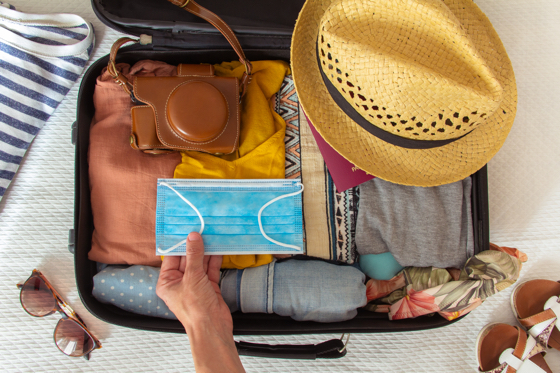The rollout of vaccines in U.S. has given a major boost to travel perceptions, consumer’s confidence and intent to travel, with almost 64% (up from 6% in May) intending to stay at a hotel as the Fourth of July weekend nears.
According to Deloitte’s State of the Consumer Tracker, 52% of the respondents (up from 7% in May) are confident of taking a flight and 66% (up from 5% in May) are interested in going to a restaurant.
While the vaccine rollout in the U.S. started from mid-December in 2020, travel intent peaked in June, with the two lagging travel categories – cruise (23%) and international flights (25%) – seeing a remarkable improvement. While the intent to stay at a hotel remained high, respondents were also confident of taking domestic flights.
According to the Consumer Tracker, 316.75 million COVID-19 vaccine doses were administered in the U.S. till June 16. While 55% of consumers have already been fully vaccinated, 15% of consumers choose not to be vaccinated.

Deloitte has been conducting a series of biweekly surveys across several countries to understand consumers’ mindset. These surveys, which started with 13 countries in mid-April and has now expanded to 15, also measure respondents’ anxiety, asking them about the perceived safety-specific activities and track where they intend to spend their money. Some of the recently-held surveys report on how safe consumer feel going to a store, staying at a hotel or taking a flight – all of which correlates to their spending intentions.
In its summer travel report, Deloitte had said that 60% of travelers were willing to spend the same amount on summer trips as they would have the summer before the COVID-19 pandemic. According to the latest Consumer Tracker, an overwhelming 73% said they were planning to spend more on travel.
Consumers in China, particularly, seem to show improved intent to travel. While still not in the positive territory, the rate of change appears to slow down and improving. Coupled with China’s relatively higher sentiment about flying and staying hotels, its domestic travel market might be the first mover in the road to recovery.
Since mid-April, economies around the world have been in various stages of reopening and there are some initial positive signs. While health and safety concerns show some signs of improvement, they still overpower financial well-being concerns and continue to inform consumer behavior. The impact of the pandemic on the global economy and rising unemployment, however, still remain a concern. Almost 40% of the employed respondents were worried over losing their jobs, a tad lower than mid-April’s figure of 42%.
Consumers have shown varying levels of concern for their personal safety and financial well-being. While there has been a welcome drop in anxiety among consumers in U.S. (-5%, as compared to 14% in mid-April), countries like India, which had a delayed impact of the pandemic, continued to display high anxiety levels.
Consumers’ concerns about their well-being have some obvious implications for retailers, restaurants, hotels and airlines. As economies gradually reopen across the world, people will continue to prioritize personal safety over any other factor.

